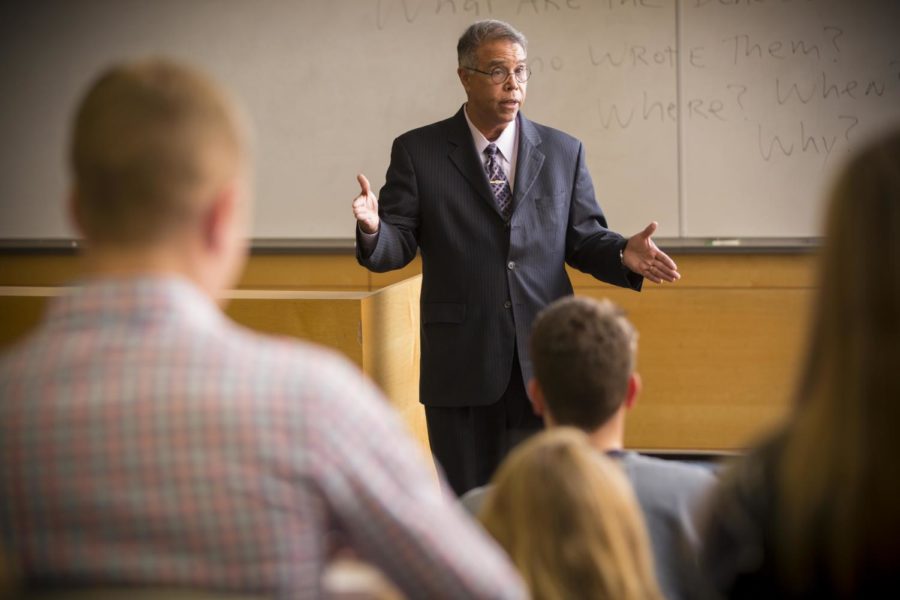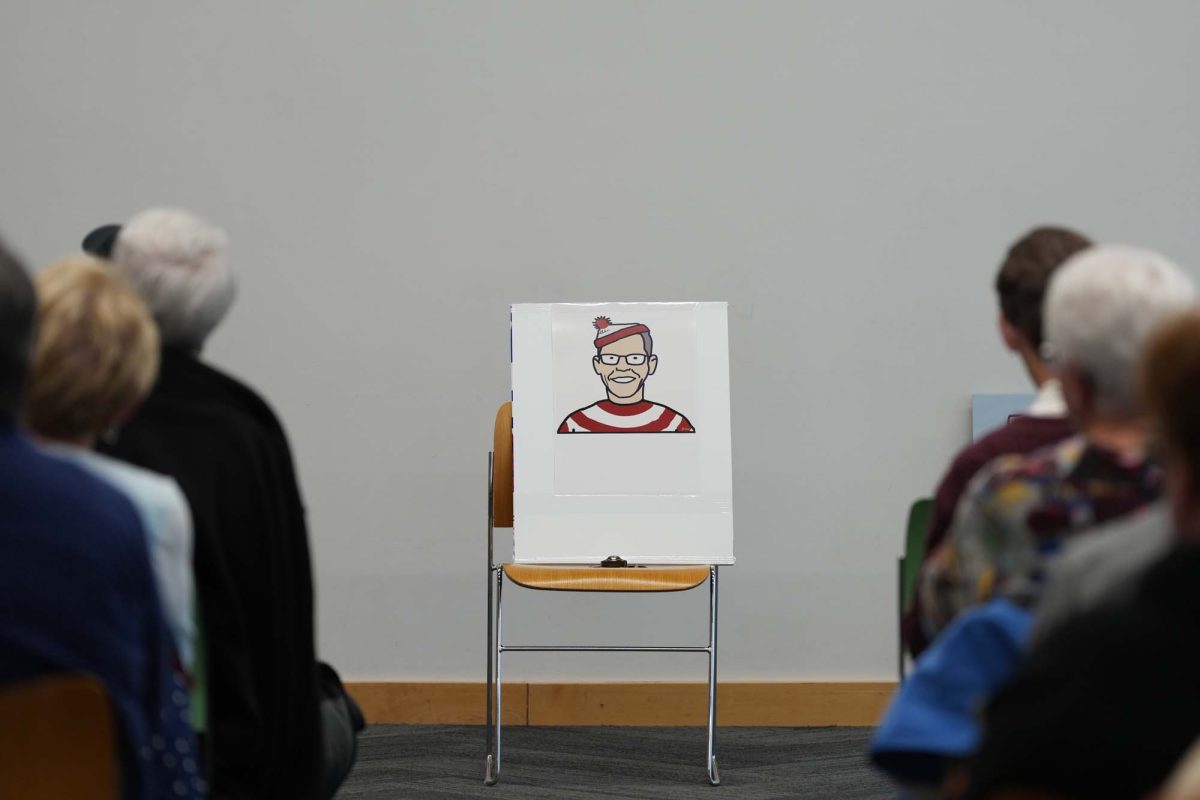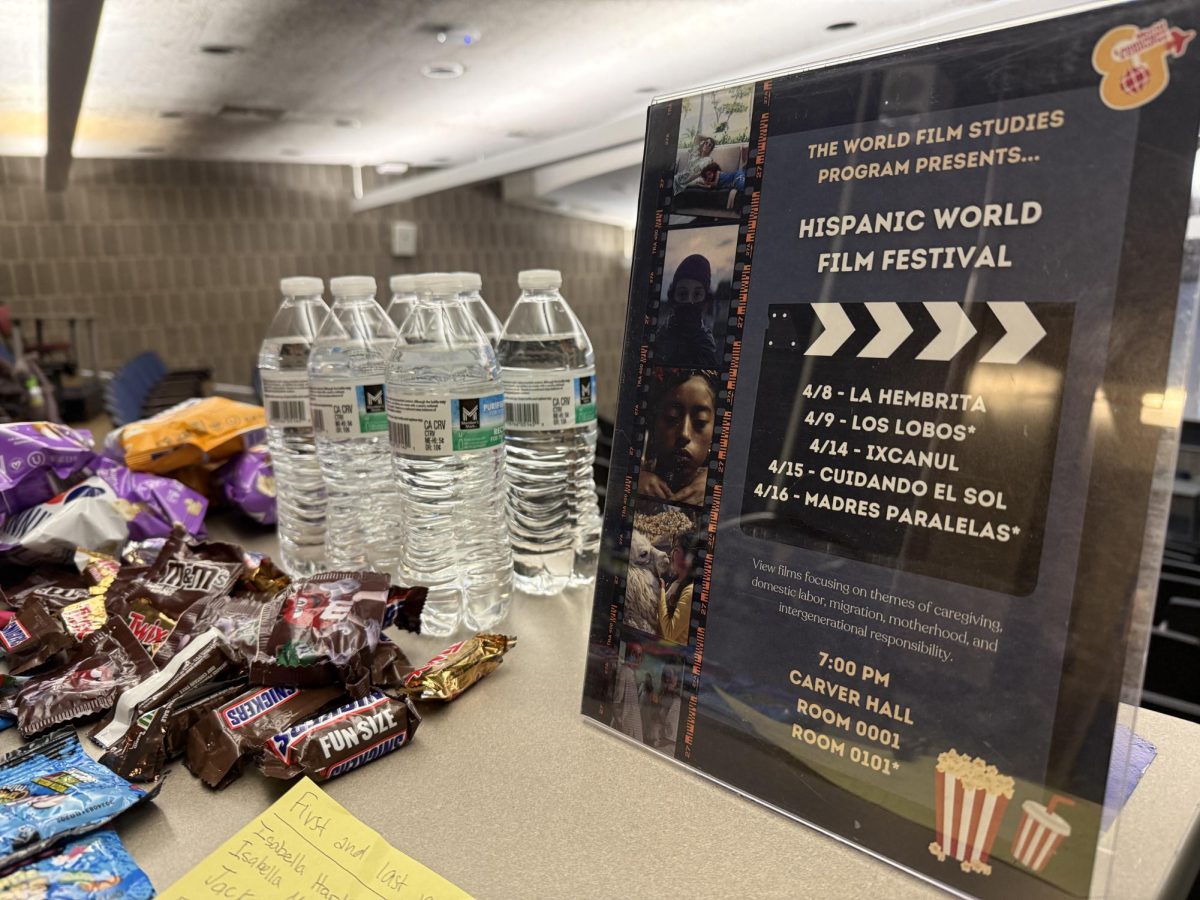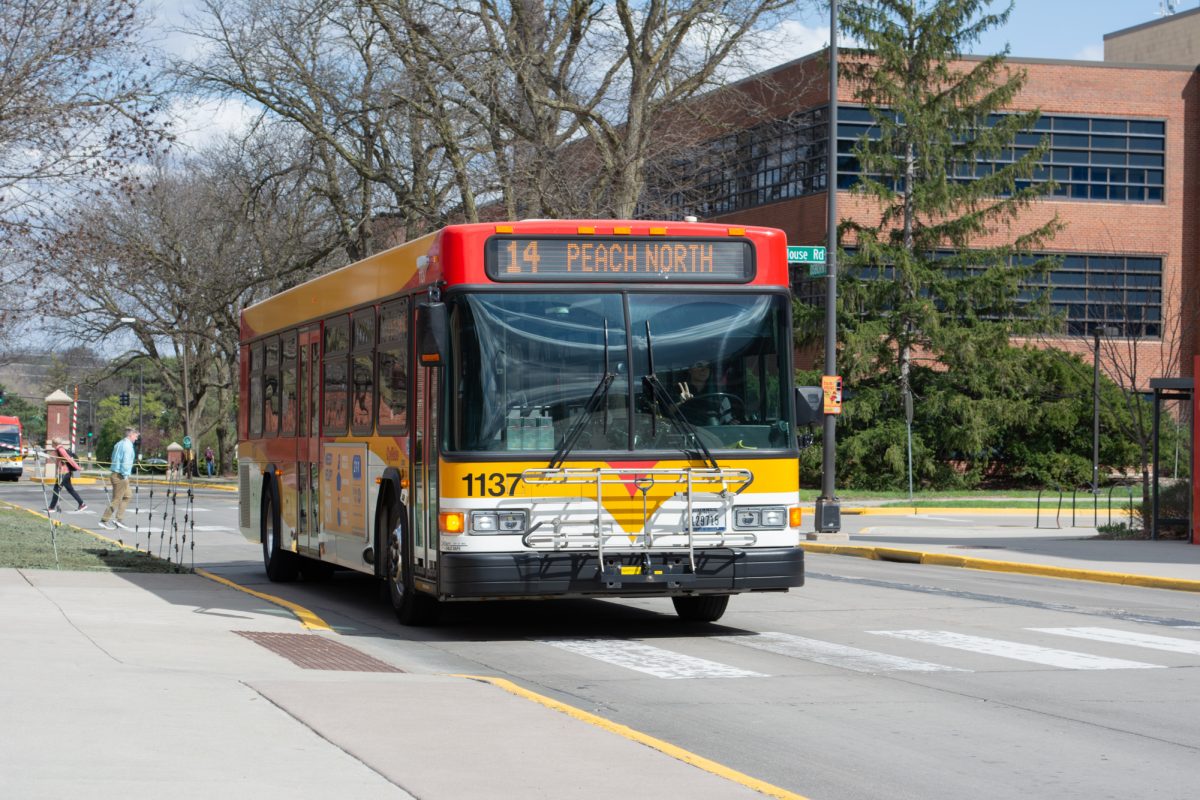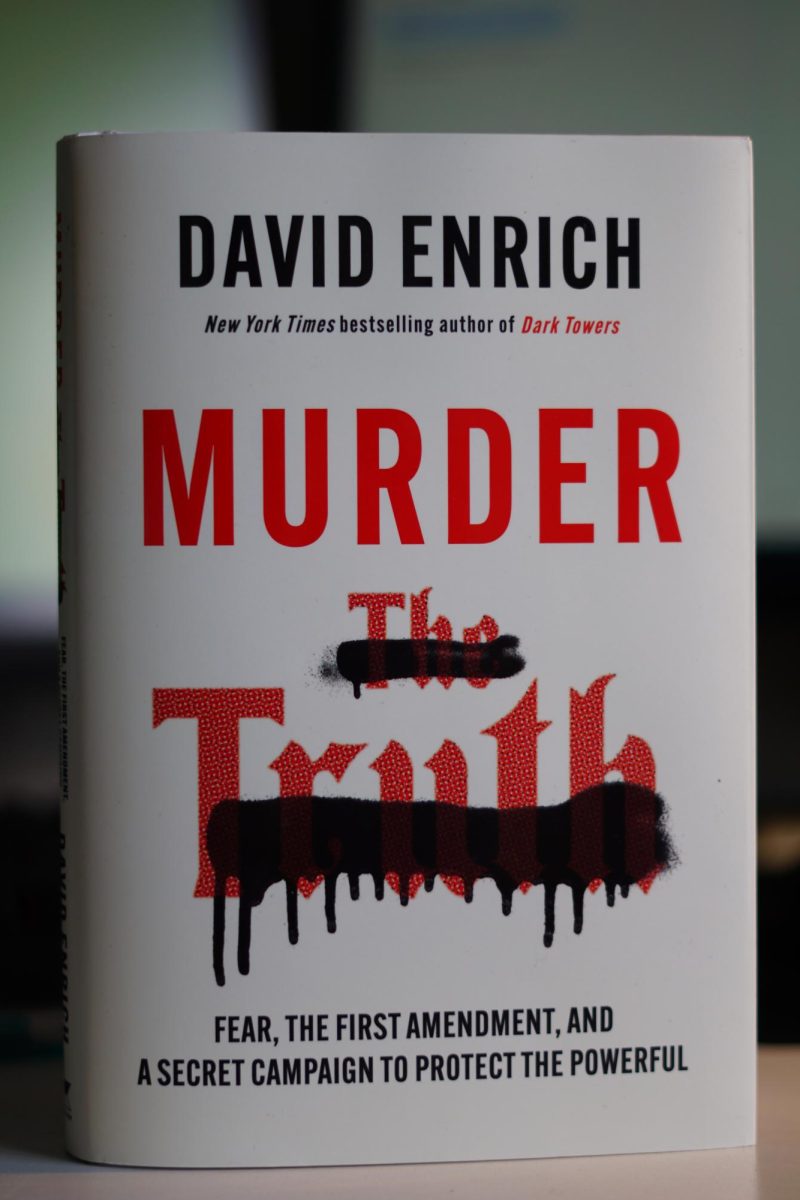Hector Avalos: A lifelong teacher
“Life is not just about longevity, I don’t care if live to 100… I live by what experiences do I want in life, and if that is fulfilled, well then go on to the next.”- Hector Avalos, 2016.
April 19, 2021
Hector Avalos, professor of religious studies, died after battling cancer at age 62.
In a well-dressed suit and sunglasses, Hector began the first day of every semester by introducing himself followed by him reciting by memory every students’ first and last name in the class.
Some might have found this intimidating and dropped but the ones who stuck around learned Hector was more than just a teacher.
Born in Nogales, Sonora, Mexico, Hector lived in a mud house made out of bricks built by his neighbor with no running water.
Hector grew up in a very religious family as a Pentecostal believer and started reading the Bible when he was no older than 4. Hector became a child preacher where he addressed congresses of adults and prayed to heal the sick.
Hector moved to Scottsdale, Arizona, midway through his K-12 education to live with his grandmother. As a middle schooler, Hector was a child chemist and was admitted into college with hopes of becoming a physicist. Soon Hector realized he didn’t enjoy math and dropped out of college in seventh grade.
That wasn’t the end of Hector’s education pursuit, Hector went on to attend the University of Arizona. At 21 years old, Hector was diagnosed with an autoimmune disorder called granulomatosis with polyangiitis. By the time Hector was diagnosed he was at near death.
Hector was kicked out of school because he couldn’t attend, he lost his job and home and eventually had to move back into his grandmother’s house.
To make up lost time, Hector asked the university if he could be awarded full credit for courses he missed if he passed the final exams. His first semester back, Hector took 45 credits and finished his sophomore, junior and senior year in three semesters.
Hector was destined for Harvard, where he earned a doctor of philosophy in Hebrew Bible and Near Eastern studies in 1993.
After growing up near Phoenix and attending school in Boston, the Midwest wasn’t necessarily on Hector’s radar but his ailment posed physical challenges. Despite his credentials, Hector struggled finding a job until Iowa State University.
Iowa State University supplied Hector with an office across from his classroom in Ross Hall to accommodate for his physical needs.
“With his disability, he was able to teach,” Cindy Avalos said. “If he hadn’t had those little bits of help it probably would have been almost impossible as sick as he was at the time. He was so thankful for those accommodations.”
At Iowa State, Hector founded and served as the first director of the U.S. Latino/Latina studies program. Hector taught for 25 years and left an impression on those who persisted.
Each semester Hector laid out the rigorous expectations he applied to all of his classes, some of his students dropped but the ones who stayed were there to learn.
Adam Meseke graduated from Iowa State with his undergraduate degree in 1998 in religious studies.
“Oftentimes he would put his students to the test and he could be very demanding at times but he just simply wanted the best out of every student,” Meseke said.
Outside of course material, Hector taught his students about textual criticism and how to conduct research for primary source material. Meseke said disagreements in opinions took place every day in class but what made Hector’s classes exceptional was his expectation of his students to respect other viewpoints.
“It is hard to put yourself in someone else’s shoes during a debate or an argument,” Meseke said. “But that is what he wanted us to get out of these classes, was learning about the other opinions, whatever the other opinion may be.”
Meseke took two semesters of Greek and Aramaic in independent studies with Hector where the two also spent time talking about film and music.
“Quite honestly he just kept pushing and he set the bar even higher next time,” Meseske said. “He really made students work for their grade.”
Richard McCarty is an associate professor of religious studies and he first encountered Hector as a guest speaker for one of McCarty’s general religion classes. From that point on, McCarty was intrigued.
Hector’s commitment to his studies was like no other. During a debate, former student Christjahn Beck remembered Hector creating a 60-slide presentation predicting and refuting the arguments the opposing side would make.
Hector built his daily schedule around his dedication for teaching, he went to bed around 6 p.m. every day and woke up at midnight to start his work. Hector found this was the time he could accomplish the most work without distractions.
“He liked to work and read and write in a very quiet house,” Cindy said. “So by working all night he had absolutely no interruptions.”
His nocturnal habits were appreciated by his students pulling all-nighters, Hector was readily available. One time he met with a group of students to help prepare them for a project at 2 a.m. in a Perkins diner.
McCarty heard Hector had passed, he cried, Hector planted the seed to eventually pursue academia.
“I always heard him in my head, I could never teach anything without think about ‘what would Dr. Avalos say,’” McCarty said.
On his first day of class with Hector, Beck remembers thinking he would be fine to handle the rigor.
“What I quickly learned is that I was not going to be fine unless I really applied myself,” Beck said. “I learned from Dr. Avalos’ course that I never really learned how to be a decent student… I learned to be a decent student because he expected so much from his students.”
Hector developed a campus organization at the Atheist and Agnostic Society. Weekly, the organization held discussions outside Parks Library called “Ask an Atheist” where students could discuss and ask questions about atheism.
Hector made an active effort to engage students regardless of their background. Former student Timmy Seo recalled a time when a student, whose first language wasn’t English, felt self-conscious to read in class. Hector worked with the student after class to help and eventually she felt comfortable to participate in class readings.
One summer, Hector ordered pizza and hired Seo and a couple other students to count the books in his house. Seo reported the count was over 10,000. Seo, who is an immigrant, said he and Hector would commonly share their experiences together.
“He is not someone who is untouchable just because he graduated from Harvard University,” Seo said. “He was human, just a goofy human being. His dad jokes are some of the best I have heard… There was an undeniable goofy side of him that I would see and discover.”
Cindy was raised in Iowa her whole life and said their different life experiences always made their marriage interesting. Some weekends, the two would research a place in Iowa and take a road trip to visit. Hector and Cindy also traveled to Europe together following the locations mentioned in the book “The Da Vinci Code.”
“He loved to teach and I loved to learn so we were just very compatible that way,” Cindy said.
Cindy said Hector’s goal as a teacher was to educate students on how to be critical thinkers and open-minded.
“I believe because he challenged all of us to think critically and to think in new ways about religious beliefs and religious systems,” McCarty said. “Because he did that I truly believe that was the great gift to the world that he will give and it will live on for decades and for centuries.”
Hector’s memorial service is planned for the early fall of 2021.


